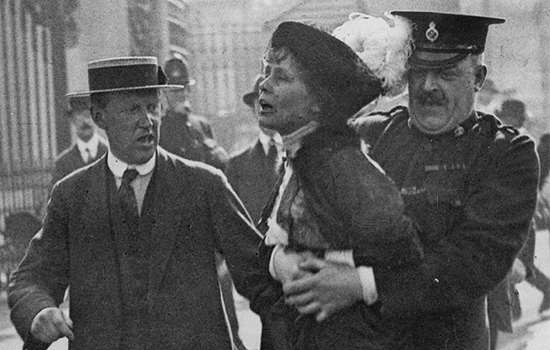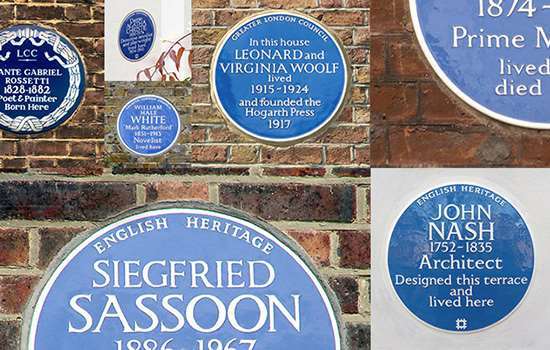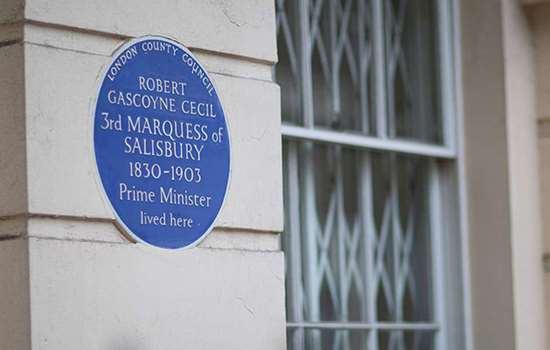PUJOL GARCIA, Juan (1912–1988)
Plaque erected in 2020 by English Heritage at 35 Crespigny Road, Hendon, London, NW4 3DU, London Borough of Barnet
All images © English Heritage
Profession
Secret Agent
Category
Armed Forces
Inscription
JUAN PUJOL GARCIA 1912–1988 Secret Agent codename ‘Garbo’ lived and worked here
Material
Ceramic
Juan Pujol Garcia was one of the most important secret agents of the Second World War. It was from 35 Crespigny Gardens, an MI5 safe house, that Pujol wove a web of deception that bamboozled the Nazis. Messages sent from the house, which diverted German forces away from the Normandy landings, were crucial in ensuring the success of D-Day.
SPAIN AND PORTUGAL
Juan was born on 14 February 1912 in Barcelona, the third child of Juan Pujol, owner of a dye factory, and his wife, Mercedes Garcia. After training as a poultry farmer and compulsory national service, he was managing a chicken farm when the Spanish Civil War broke out. Evading conscription into the Republican army, and serving for a time in a Nationalist signals unit, he emerged from the conflict with a loathing of fascism.
Pujol was working as a hotel manager in Madrid at the outbreak of the Second World War. Determined to help stop the spread of fascism, he and his wife, Araceli, approached the British embassy offering his services, only to be repeatedly rebuffed. He then offered to spy for the Germans instead, posing as a fanatical Nazi. In late April 1941 he travelled to Lisbon, from where he concocted a stream of bogus reports – based on whatever sources he could lay his hands on – that convinced his German handlers that he was actually in London, heading a network of spies across Britain.
MI5 finally accepted Pujol as a double agent, arranging for him, Araceli and their young son to be smuggled to Britain in the spring of 1942.
CRESPIGNY ROAD
Shortly after his arrival Pujol was driven to London, where he took up residence at 35 Crespigny Road in Hendon. He was set up as a double agent, reporting to Tomás Harris as his handler. He was given the codename ‘Garbo’ because of his acting abilities.
The unassuming 1920s suburban house became both Pujol’s home and his workplace. Although later in 1942 he and his wife moved around the corner, to 55 Elliot Road, Pujol continued to work here, as it was also home to the wireless transmitter and its operator Charles Haines, who collaborated closely with Pujol.
It was at no. 35 that Pujol and Tomás Harris created the extraordinary fiction that would deceive the Germans for the next three years. The pairing of Harris – who was half-Spanish – and Pujol was inspired. Together they ‘recruited’ an elaborate network of 27 entirely fictitious spies, all of whom the Germans paid for. Communicating first by letter and later by radio, they devised ever more ingenious ways to deceive the Germans.
The culmination of their efforts was Operation Fortitude, the astonishingly successful deception intended to mislead the Germans about the timing, location and scale of the Allied invasion of Normandy. The string of false information Pujol supplied from Crespigny Road from January 1944 onwards was crucial in convincing German intelligence that the main attack would be in the Pas de Calais, rather than in Normandy. Because Pujol had tipped them off about the date of the Normandy landings, but insisted that they were a diversion, the Germans kept two armoured divisions and 19 infantry divisions on the coast at Calais, waiting for an attack that never came.
So convincing was the deception that the Germans continued to believe in Pujol throughout the war – six weeks after D-Day Hitler awarded him the Iron Cross for his ‘extraordinary services’. Pujol received an MBE from the British in December 1944, although in secret to avoid exposing him.
POST-WAR
In his loyalty to his work, Pujol could be ruthless in his personal life. His wife, homesick and bored, at one stage threatened to blow his cover. Pujol and Harris devised a deception whereby Araceli was told that, because of her actions, he had been arrested; distraught, she pleaded for Pujol’s release, promising not to make any more threats. The ruse worked and Pujol returned home, but lasting damage had been done to the marriage.
After the war he was eventually given a new identity in Venezuela, and several years later Araceli and their three children returned to Spain. In 1949 – in one final piece of fiction to avoid Nazi reprisals – she was told that Pujol had died of malaria in Africa. In reality he remained in Venezuela, where he worked for Shell Oil as a language teacher, remarried and had three more children.
His identity as Garbo was uncovered in 1984 and he was officially recognised for his achievements at Buckingham Palace. On the 40th anniversary of D-Day, Pujol travelled to Omaha Beach in Normandy, where he met veterans of the conflict, who queued up to thank him. When, however, he visited the graves of those who had been killed in the landings, he wept and said: ‘I didn’t do enough.’ Juan Garcia Pujol died after suffering a stroke in Caracas in October 1988, aged 76.


